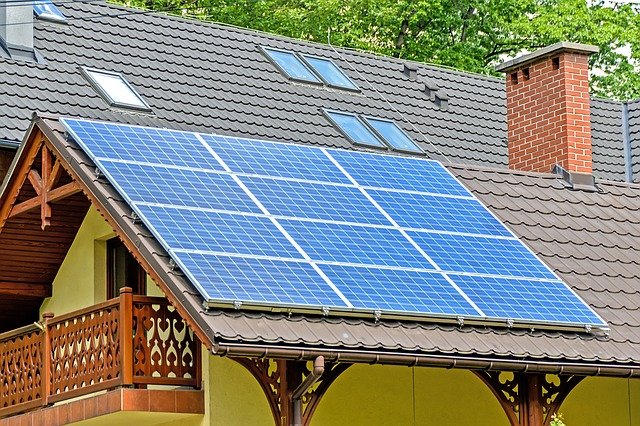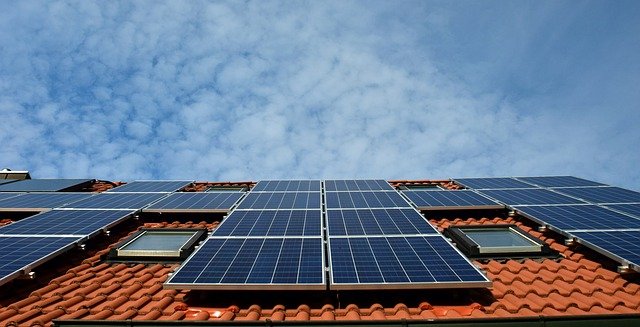When you purchase through links on our site, we may earn an affiliate commission. Here’s how it works.
Is Solar Energy Actually Cost-Effective? – Overview
Solar energy is the oldest form of energy yet the least harnessed one. With concerns about climate change growing worldwide, there has been an inherent rise in solar energy generation projects too.
Many of us are still unaware of the immense benefits of solar energy and have several common doubts in mind.
One of the most frequently asked questions about solar energy relates to its cost-effectiveness.
In this article, we will try to dispel the myths and present facts about solar energy, its usage, benefits and whether solar energy actually cost-effective.
Powering your Home with Solar Energy
Tapping the power straight from the source makes much more sense than paying the utility company to deliver it indirectly to your home.
Essentially, solar power is incredibly cost-effective as compared to conventional electricity a report by the World Economic Forum (WEF) states that installing new solar power panels is cheaper than investing in coal, natural gas or other conventional sources of fuel.

Is Solar Energy Actually Cost Effective? – Powering your Home with Solar Energy
To put it into perspective, let’s assume that you have installed solar power panels at your home. Now, let’s take a closer look at the cause and effect of this decision.
Solar panels
Let’s start with solar panels. These panels are classified according to their theoretical output potential in watts.
In reality, the capacity factor (regular output provided by installed solar panels) for solar panels is between 15% and 30% of the theoretical output.
For instance, a 3 Kilowatt-hour (kWh) residential solar energy generation system running at a 15% capacity factor would produce around 3,942 kWh per year. This is roughly 1/3rd of the average energy consumption for an American household.
However, results vary from household to household, too, for different reasons. Several financial and practical factors determine the viability of a household to go solar.
Cost of Solar Power
Solar power is capital intensive, meaning it requires a significant amount of investment in fixed assets.
This also means that the majority of expense occurs when buying the solar power equipment. The solar module is probably the costliest component in the solar power generation system.
Besides, you will also need to buy and install an inverter that can convert the direct current produced by the solar panels into an alternate current used by household appliances.
A metering system is also needed to monitor the power production along with miscellaneous cables, wiring and wiring equipment.
Many homeowners prefer to store solar-generated electricity, which requires buying storage batteries.
However, transferring your additional output into the power grid and paying off for utility is easier and more cost-efficient. Besides, storage batteries and their installation costs are generally prohibitive.
Apart from the cost of buying and installing solar power equipment, you also need to consider the expense of operating and maintaining it.
The solar array requires regular cleaning, and there is also the cost of maintenance and replacement of battery (if installed) and inverters to be considered.
On the plus side, the government also provides subsidies to homeowners who choose to go green with solar power.
This can considerably reduce the overall cost of solar power generation for your home. On average, the US government offers up to 30% as a Tax Credit towards covering the cost of solar power system installation.
There is a way to validate the cost effectiveness of solar power systems
If you wish to know the specific details and find out how cost-effective a solar power system for your home would be, we urge you to visit the Database of State Incentives for Renewables & Energy (DSIRE) website.
Readers from other countries can find specific details and benefits of installing solar power panels at home on government or solar advocacy websites.
Also, homeowners should check with their utility provider and find out the offers and incentives for solar power systems.
Most utility/electricity companies allow grid interconnection and often buy the excess electricity generated from your home solar power system and transfer it into the grid.
Benefits of Solar Power for Home
Now that you know the essential details of solar power installation costs, let’s turn to check the benefits of solar power for homes and learn if solar energy is cost-effective.

Benefits of Solar Power for Home
1 – Cost savings
The largest benefit of installing rooftop solar panels for homeowners is that they offer cost savings.
Compared to conventional utility rates for industrial and commercial settings, the cost of solar power through rooftop solar panels is cheaper by 17% and 27% respectively.
Homeowners notice a drastic decrease in their electricity bills, too, as solar panels replace the need to buy electricity from the grid, thus saving on utility costs.
2 – Secure investment
The cost of electricity keeps fluctuating frequently. This makes it difficult to predict the exact cost of electric usage for any period of time.
However, the cost of generating power using rooftop solar panels is extremely easy to calculate.
Thanks to the ability to predict the cost of electricity generation/usage for years to come, solar power panels are an immensely secure investment.
3 – Larger access to energy
Despite the power grid spanning the entire country, there are still areas where utility companies are unsuccessful in ensuring an uninterrupted power supply.
Home and business owners in such areas are then forced to rely on diesel generators to generate their power, which is prohibitively costly and harmful to the environment as well.
However, solar energy provides an incredibly cheap and easy-to-access source of energy for such areas. Solar panels are extremely eco-friendly and can be used in almost any weather and climate.
4 – Government subsidies
Another major benefit of choosing solar power over conventional power is the impressive tax credits and subsidies that the government is offering to home and business owners ready to install rooftop solar panels.
The government offers to cover as much as 30% of the total cost of solar power system installation in many states.
Conclusion
With the urgency to combat climate change looming large, it is time to make a drastic move toward clean and renewable energy sources.
Solar power is the most abundant and efficient renewable source of clean energy today.
Besides being eco-friendly, a decision to shift to solar power from conventional power as a homeowner also proves to be highly cost-effective.